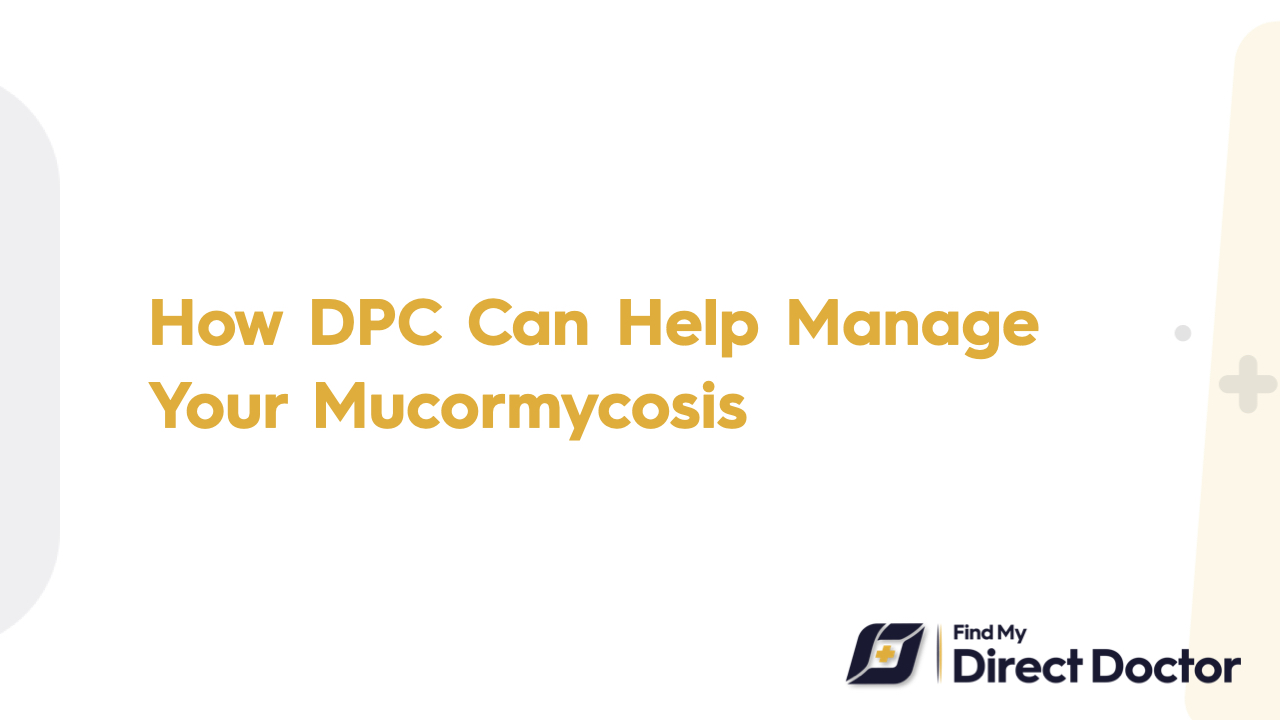



Molds called mucormycetes are the source of the uncommon but dangerous fungal infection known as mucormycosis. It can spread quickly through the skin, lungs, or sinuses and mainly affects those with compromised immune systems. Depending on the region impacted, symptoms may differ, but they frequently include face swelling, headache, fever, nasal congestion, mouth or nose black sores, and trouble breathing. Mucormycosis can result in serious tissue damage and even fatal complications if therapy is not received, particularly in patients using immunosuppressive medications or those with diabetes.

By giving patients greater direct access to medical professionals, Direct Primary Care (DPC) offers a proactive and individualized approach to addressing mucormycosis. Patients can have brief consultations and follow-up appointments under a DPC model to address symptoms early and guarantee prompt treatment. This method makes sure the patient gets the right drugs, treatments, and referrals to specialists for the fungal infection while also allowing for closer monitoring of the illness and care adjustments as necessary.
DPC offers patients with mucormycosis two main advantages: ongoing care and individualized attention. Quicker interventions are made possible by direct connection to a healthcare professional through DPC, as mucormycosis necessitates immediate and frequently extensive therapy. To talk about their problems, monitor their progress, and get personalized recommendations, patients can readily contact their doctor. More intimate care management lowers the risk of complications by ensuring early disease detection and allowing treatment regimens to be modified in response to the patient's response.
The treatment of mucormycosis in a DPC context is very customized. Each patient's unique risk factors, symptoms, and reaction to treatment are evaluated by the providers. This makes it possible to develop a treatment plan that can involve antifungal drugs, specialist referrals, or dietary or lifestyle changes to strengthen the immune system. Patients receive continuing, needs-specific care with frequent follow-up visits, which guarantees they have the assistance they need to fight off the infection and fully recover.
Previous Post